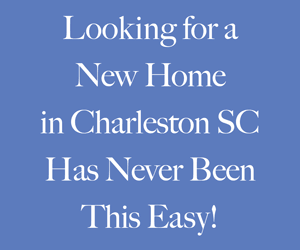
A Comprehensive Guide
Considering a private school for your child in Charleston, South Carolina, can offer numerous advantages. The top-ranked private schools in Charleston, including Ashley Hall and Porter-Gaud School, provide a higher standard of education compared to the state average. These institutions often feature smaller class sizes, allowing for more individualized attention and stronger student-teacher relationships.
Families in Charleston can also benefit from the diverse options available. Charleston Collegiate School is known for its project-based learning approach, which can be especially engaging for students who thrive in hands-on environments. Many private schools in the area, such as Bishop England High School, also offer religious affiliations, which can be an important consideration for families with specific faith-based preferences.
When comparing costs, the average tuition for private schools in Charleston is notably higher than the state average. For example, Charleston County averages nearly $15,000 per year. Despite the higher cost, the long-term benefits, such as better college preparation and more extracurricular opportunities, often make private schooling a worthwhile investment for many families.
Exploring Educational Excellence
Private schools in Charleston, South Carolina, offer unique advantages. These include strong academics, a focus on character building, and a variety of school choices.
Core Academic Advantages
Private schools often provide rigorous academic challenges that help students excel. Schools like Porter-Gaud and Ashley Hall are well-known for their strong curricula, which often include advanced placement courses and specialized subjects.
Testing methods also vary, with a focus on both standardized tests and project-based learning. Schools like Charleston Collegiate prefer projects over tests, helping students think critically and apply their knowledge in real-world scenarios, thus preparing them for future academic success.
Cultivating Character and Values
Many private schools in Charleston incorporate character education into their daily routines. First Baptist School, for instance, emphasizes a Christian perspective, which helps shape students’ moral and ethical values.
The school culture in private institutions often focuses on community and personal growth. Small class sizes allow for personalized attention, fostering strong relationships between students and teachers. This environment is conducive to developing well-rounded individuals who are not only academically proficient but also socially and emotionally intelligent.
Navigating the School Landscape in Charleston
Charleston’s private school landscape is diverse, with schools affiliated with various religions as well as secular institutions. For instance, 67% of private schools in Charleston are religiously affiliated.
Choosing the right school involves considering factors like tuition, location, and school culture. Charleston County has 48 private schools serving over 10,200 students. The average tuition is around $9,300, but some schools, particularly those in downtown, cost more.
Parents can apply to any school regardless of their neighborhood, and each school has unique features, from specialized programs to different teaching methods. Understanding these options can help families make informed decisions about their children’s education.
Comparative Perspectives on Private vs Public Schools
Many parents in Charleston, SC, are considering the differences between private and public schools. Key distinctions include academic performance, financial aspects, and community involvement.
Assessing School Performances and Cultures
Private schools in Charleston often highlight their strong academic outcomes. Research suggests private schools may offer more resources for personalized education, smaller class sizes, and specialized programs. For instance, teachers at private schools might have more freedom to develop creative lessons.
Public schools serve a larger, more diverse student body and follow state-mandated curricula. They may not have the same level of funding for individual attention, but they provide a wide range of extracurricular activities and special education services.
Parents might also appreciate the sense of tradition and culture in private schools. Private institutions often foster close-knit relationships among students, parents, and staff. On the other hand, public schools typically emphasize inclusivity and social engagement across broader demographics.
Understanding Tuition, Fees, and Financial Aid
Private schools charge tuition, which can range from a few thousand to tens of thousands of dollars annually. Additional fees for activities, books, and supplies can add up. However, many private schools in Charleston offer financial aid to assist families.
For parents weighing these costs, it’s crucial to compare the financial commitment of private schools with the free education provided by public schools. Public schools do not charge tuition and usually offer free textbooks and reduced or free meal programs.
Financial aid in private schools may cover significant portions of tuition for qualifying families. Scholarships, grants, and work-study programs can reduce the financial burden. Parents should contact individual schools to learn about specific financial aid packages and application processes.
Connecting with the Charleston Private School Community
Building connections within the school community is essential for many families. Private schools in Charleston often provide opportunities to engage through clubs, parent associations, and school events.
Having a strong community helps parents form relationships with both teachers and other families, enhancing the educational experience and providing a supportive network. Guidance counselors in private schools are often available for personalized student support, helping families navigate academic decisions.
Public schools also offer a variety of clubs and activities, fostering relationships across a mixed demographic. The community aspect in public schools can be just as vibrant and rewarding, with numerous opportunities for involvement.
In conclusion, families in Charleston need to consider academic performance, costs, and community connections when choosing between private and public schools. The right fit depends on each family’s priorities and resources.

